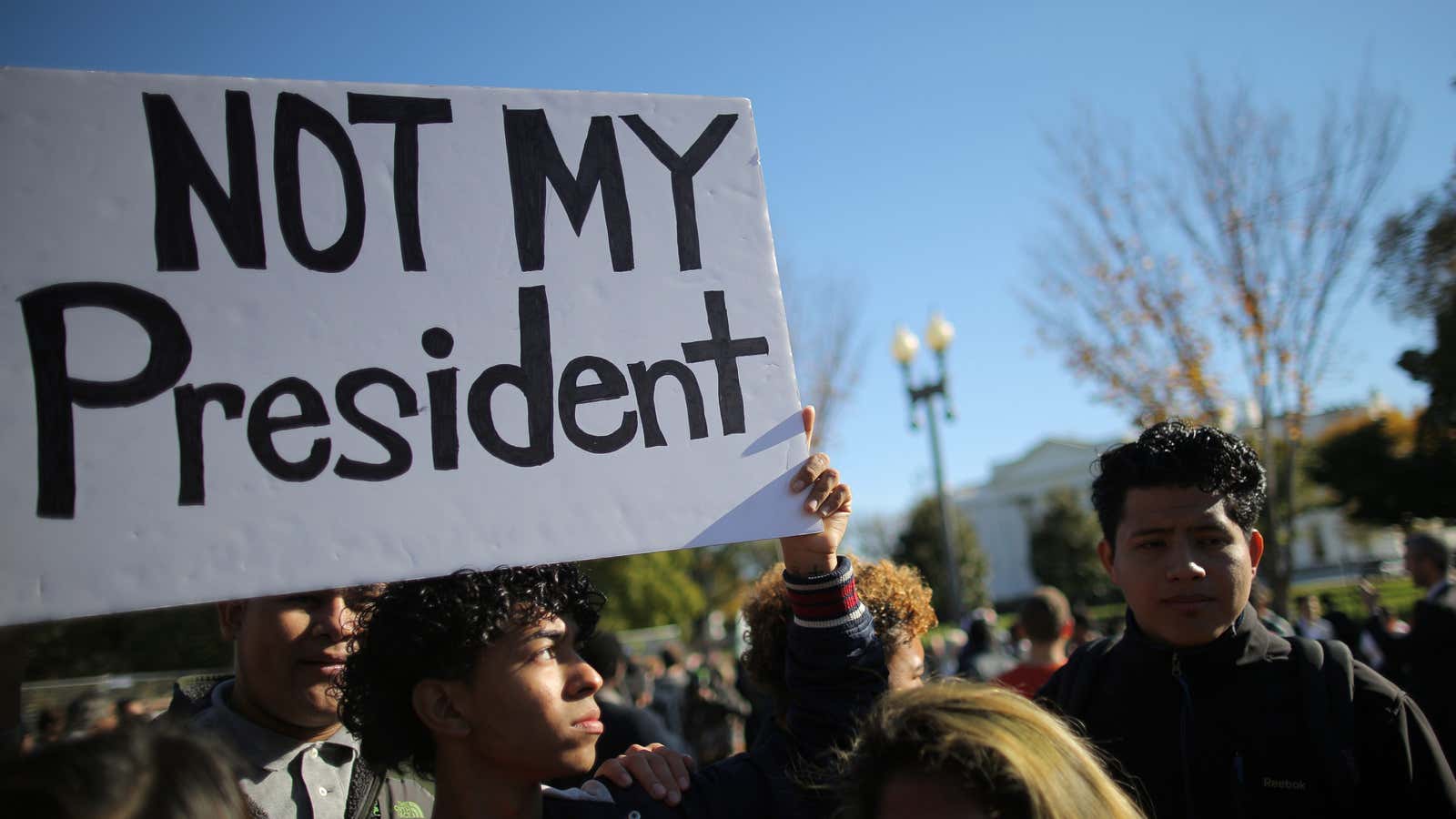As protests against America’s next president sprang up for a second night in several cities around the US, the president-elect himself took to Twitter to complain about it.
This week, we heard the woman who lost to Trump tell her supporters, with apparent sincerity, that both she and they ”owe him an open mind and the chance to lead.”
We watched the current US president, whose very legitimacy as a leader was for years questioned by a racist movement promoted by his successor, set this dark history aside as he hosted Trump at the White House today, shaking his hand and sitting by his side as the cameras clicked away.
We’ve heard the new guardians of the left, like senator Elizabeth Warren, welcome the chance to work with Trump on infrastructure investment, financial reform, and other areas of seemingly mutual interest.
These concessions, surreal as they may seem, and as difficult as they may be to accept by voters opposed to Trump’s candidacy, are vital to the functioning of America’s democracy. They are signals of a peaceful transition of power. They are reminders that above partisan politics, there is a greater good to serve.
The people protesting in America’s streets tonight are not yet ready to paper over their feelings and get on with the difficult business of unifying the country. If it isn’t productive, it’s perhaps understandable; they are grieving for a vision that died on election night—just as Trump was on election night in 2012, when Republican Mitt Romney lost and Trump shared his frustrations with the electoral college system.
Trump was a private citizen then, he was smarting from a painful loss at the polls for his candidate of choice. If he wasn’t ready to heal the wounds of a nation, well, no one was looking to him to do so.
Today he is America’s president-elect. He is benefiting from the graciousness of his opposition’s leadership. And tonight he is lashing out again on Twitter. What excuse would he give now?
